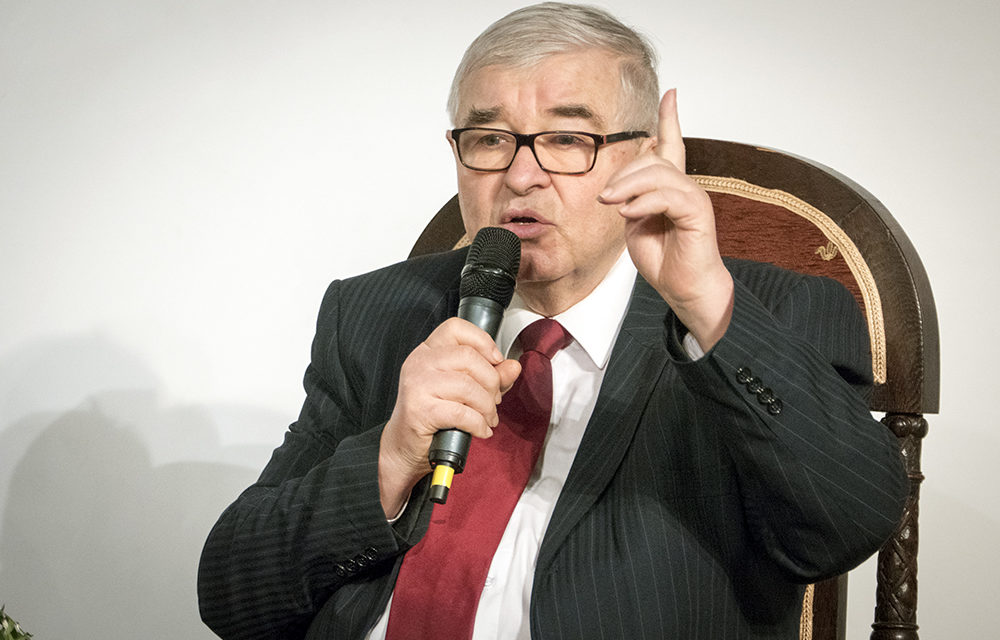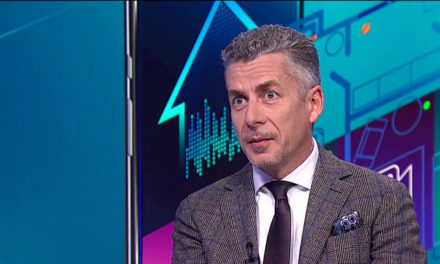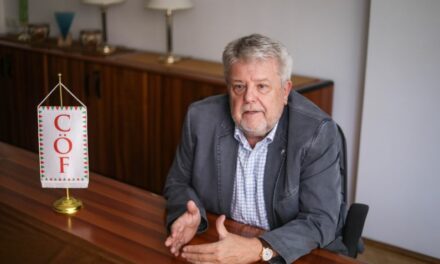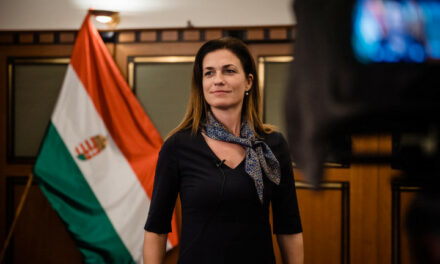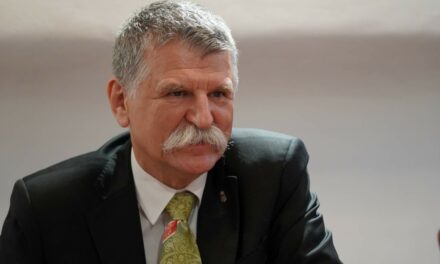Today, we are at the point where they want to use democratic structures that have been thoroughly contaminated by systematic work to legalize their dictates.
Reference to the rule of law often occurs in our discussions with the institutions of the European Union. Complaints are becoming more frequent that our country does not meet the criteria of the rule of law, that it creates laws ignoring them, violating them, and that it does not adapt to the "common" European "values" that form the basis of the rule of law. The accusations are serious, so it is worthwhile to find out what real basis they have, since in cases classified as offenses against the rule of law, they want to take away basic rights from our country's membership, and what's more, they threaten with material and financial sanctions.
It should be emphasized right away that the institutions of the Union formulate rule-of-law type reservations only against countries that, according to the traditional political right and left classification, belong to the right (actually patriotic-sovereignist) side, such as our country, Poland or occasionally Slovenia.
In these countries, the governments pursue a policy of national interest based on consistent democratic norms, and they wish to enforce this in their relations with the EU. The relationship between democracy and the rule of law is important and needs to be clarified, clarifying whether the two very important concepts are synonymous with each other, whether they are partially different things, or whether we are dealing with two concepts that are far from each other.
We entered the union as an exemplary democracy. Let's start with the interpretation of the concept of democracy and the process by which the development of democracy took us to the European Union a decade and a half after the official system change. The change in the system was accompanied by the liquidation of previous, non-democratic institutions and the creation of those characteristic of democracies.
The one-party or state party system was liquidated, giving way to multi-polar party structures. Even before the time officially called the regime change, the private army of the one party, the workers' guard, was disbanded. The people's representation - the parliament - was established with the participation of parties, so on a democratic basis. Local governments were also established as a result of democratic elections to manage local affairs.
An epoch-making progress has also been made in the area of citizens' freedom of enterprise. Entrepreneurship has become a fundamental civil right. Legal foundations were established for the management of corporate legal entities (kft., rt.). There are no restrictions on citizens' wealth. In the former dictatorship, the ownership right, which typically included only personal use, extended to business assets as well.
The distinction between the three Ts has also disappeared in cultural life. The previous course supported some cultural products and tolerated others, while there were also many that it expressly prohibited and persecuted, along with their creators and distributors. In the spirit of developing democracy, everyone can bring to the market such cultural products as they like and for which they find an audience.
The change of location is also completely freed. Everyone is free to travel abroad, a permanent and permanent stay abroad is not considered illegal, as long as it does not conflict with the laws of the host country. Of course, all these democratic changes did not automatically mean that we could be members of the EU. The march was still very long. For a long time, we had the feeling that we were still at least half a decade away from membership. Speaking in the language of aviation, we actually stepped onto the runway around 1998.
The implementation consisted of fine-tuning the domestic and European legal order and practices. Yes, it was about the fact that we had to accept the legal principles and practices that the countries that had previously joined the community claimed as their own with a common will. This was the condition for our democracy to be accepted as fully European, and our economic conditions as typical of a developed market economy.
A long negotiation phase followed, with about twenty-five different negotiation chapters. We had to agree with each member country in each chapter. If even one raised a veto, things stalled. Among the negotiation chapters, many also touched on human rights issues. Such was the judicial chapter, but also the system and infrastructure of border protection and asylum, and the penal system. We were given a deadline to remedy the identified deficiencies, and we were also temporarily exempted from performance (derogation). Others could use the derogations against us.
Among other things, the free movement of labor - as a fundamental EU right - was suspended for years after our accession. Of course, the economic type chapters were not too easy either. Current European law also treats agricultural land as a capital asset, so it can be bought and sold freely, not only by domestics, not only by individuals, but also by companies. If we don't come to our senses in time and develop our still bombproof rules, we could have said goodbye to the good of our agricultural lands a long time ago. Hungarians could only work as employees on Hungarian lands.
In cases where, in addition to administrative tasks, the measure also had investment implications, the union opened the pre-accession funds to us. However, the money could not be simply withdrawn. The contractors had to compete for the projects in open competition, and the final decision on payment was always in Brussels. In short, we worked terribly hard to be recognized as a full-fledged democracy, and our economy as a developed market economy.
Not only the entry into NATO, but also the EU membership was confirmed by a referendum. The large majority (84 percent) of those who took part in the valid and successful referendum voted to accept membership. For us, the process of our preparation and accession was democracy cut to the bone.
It should be noted that, in certain conditions, negative discrimination prevailed against us. For years, the farmers of the newly joined countries received a fraction of the agricultural direct payments. Even within this, we also have the smallest amount (25 percent). It took a decade to catch up. Former member countries (Denmark, UK and Sweden) also received a perpetual exemption for joining the Eurozone, which was introduced in 1999, but it was stipulated in the contract with us that we will leave the national currency at a later date.
At the time of our accession, however, it was not yet apparent that the countries that joined between 2004 and 2007 could only benefit from consensus decision-making to a limited extent even after their membership. The situation took a really rough turn around 2015. Angela Merkel extended an open invitation to the immigrants, but it immediately became clear that the invitation did not only apply to Germany, but to the entire EU. According to this, those who have been called up by the Germans must then be distributed among the member countries according to quotas, because the unlimited acceptance of migrants without valid international asylum rules is a "common European value".
Prior consensus was no longer necessary for its acceptance. Consensus can be reached in the forum of heads of state and government, in the council. In order to protect the new type of "European value", the consensual Schengen border protection was also bracketed. Those who protect the borders do not respect the new "European value".
According to the new "European value", borders should not serve to protect against unauthorized intruders, but have the task of receiving and managing migrants. People have the right to go where they want, and the host countries have a duty to take care of them. The latest "European value" is the mandatory acceptance of the countless, ever-expanding storehouses of gender diversity, what's more, the mandatory beginning of preparation for them (called sensitization) already in kindergarten, as well as the criminalization of those who resist it. The new European values must be put to the democratic test as a matter of urgency.
In the case of these novel "European values", has the grassroots initiative, perhaps its most democratic forms, such as large number of signature collections, successful referendums, which resulted in the creation of coercive, effective parliamentary laws in favor of these values, been valid? Has the greatest salvation of democracy ever been forced by the people (the demos) in a single EU country so that these new "European values" are protected by law, and what's more, they are entitled to support with state and budgetary means?
Have there ever been mass movements in any EU country for same-sex couples to adopt children? We can definitely state that there have never been any such initiatives that mobilize the democratic masses. In their place, the ever-increasing "European values" are produced in workshops aimed at globalist world transformation, and they want to push them through with the help of institutions that are already very much in their hands, such as the European Parliament, and then declare a rule of law based on them.
This type of "rule of law" has nothing to do with democracy, it is nothing more than the opinion dictatorship of a well-funded aggressive minority. Today we are at the point where they want to use the democratic structures completely contaminated by systematic work to legalize their dictates (European values).
If they really want to act democratically, they should ask the people if they want countless migrants, if they want to equate the mushrooming gender deviance with the traditional male-female relationship, or if they agree that everyone on the globe should go where they want. Until these can be overcome, the mantra of the rule of law is nothing more than an unprecedented insidious attack on democracy in order to eliminate it and produce an artificial democracy of their choice.
economist Imre Boros
Source: Magyar Hírlap
Photo: 2022plus

